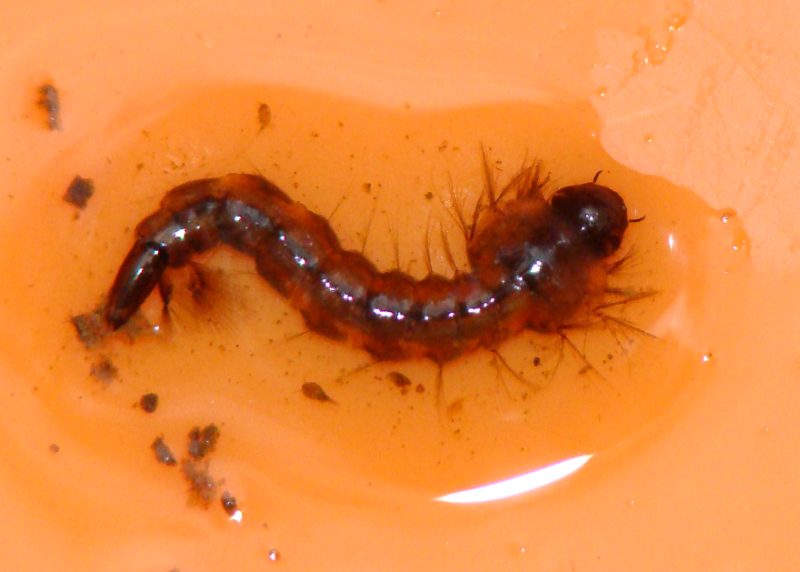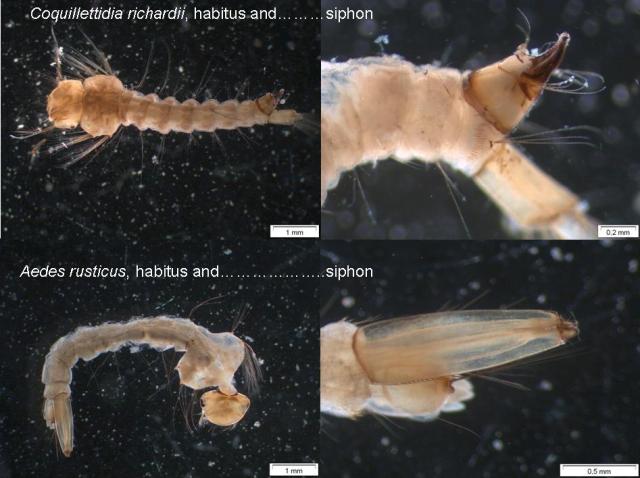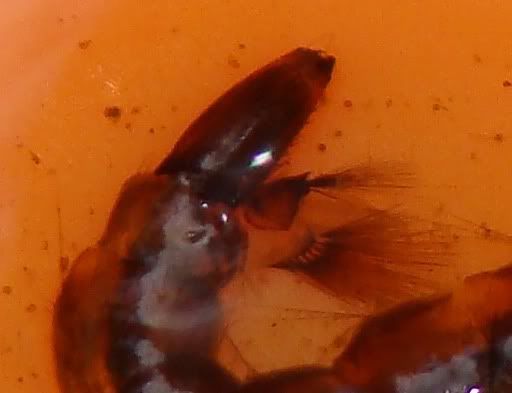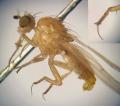Diptera.info :: Identification queries :: Diptera (eggs, larvae, pupae)
|
Culicidae larva: Ochlerotatus or Aedes ?
|
|
| valter |
Posted on 04-06-2010 07:55
|
|
Member Location: Faro, Portugal Posts: 1998 Joined: 09.07.07 |
This larva was found swimming on a stream: always up and down Location: Algarve, Portugal Date: May 2010 Thanks, Valter valter attached the following image:  [61.52Kb] Edited by valter on 04-06-2010 23:43 |
| Galeodes33 |
Posted on 04-06-2010 08:22
|
|
Member Location: Madagascar Posts: 49 Joined: 28.05.10 |
It doesn' t have cornicles ( at least that is how I think you call them) |
|
|
|
| Galeodes33 |
Posted on 04-06-2010 08:23
|
|
Member Location: Madagascar Posts: 49 Joined: 28.05.10 |
Maybe Chironomid. |
|
|
|
| atylotus |
Posted on 04-06-2010 10:03
|
|
Member Location: Amsterdam, NL Posts: 1172 Joined: 29.05.09 |
No, not a chironomid, but a culicidae larva. You can see the thick brown siphon at the end, present in Culex, Culiseta and Aedes, and lacking in Anopheles and modified into piercing siphon in Coquillettidia. The shape of the sipon is hard to see, but definitely not Anopheles. In Culex the siphon is long and slender as well in some species of Culiseta. In Aedes and some other species of Culiseta the siphon is short and wide. But as I can't see the siphon in lateral view it can be Culiseta, Aedes or Coquillettidia. Aedes however lives mainly in forest pools and other temporary habitats, so that may be out of the question too. |
|
|
|
| valter |
Posted on 04-06-2010 10:09
|
|
Member Location: Faro, Portugal Posts: 1998 Joined: 09.07.07 |
This is the most common Larva found in Wells... always swimming up and down. |
| atylotus |
Posted on 04-06-2010 10:38
|
|
Member Location: Amsterdam, NL Posts: 1172 Joined: 29.05.09 |
could you show me a more detailed photo of the siphon in lateral view? If you don't know, the siphon is the brown chitinized tube at the dorsal side of the last abdominal segment. I'll show you the habitus/siphon of C. richardii and Aedes rusticus. The siphon of Coquilettidia is typical, the one from Aedes not. This siphon-shape is also present in other genera and species(especially Culiseta) atylotus attached the following image:  [44.89Kb] |
|
|
|
| valter |
Posted on 04-06-2010 13:26
|
|
Member Location: Faro, Portugal Posts: 1998 Joined: 09.07.07 |
 |
| Tony Irwin |
Posted on 04-06-2010 23:30
|
|
Member Location: Norwich, England Posts: 7328 Joined: 19.11.04 |
Looks like Ochlerotatus or Aedes to me.
Tony ---------- Tony Irwin |
|
|
|
| Jump to Forum: |













